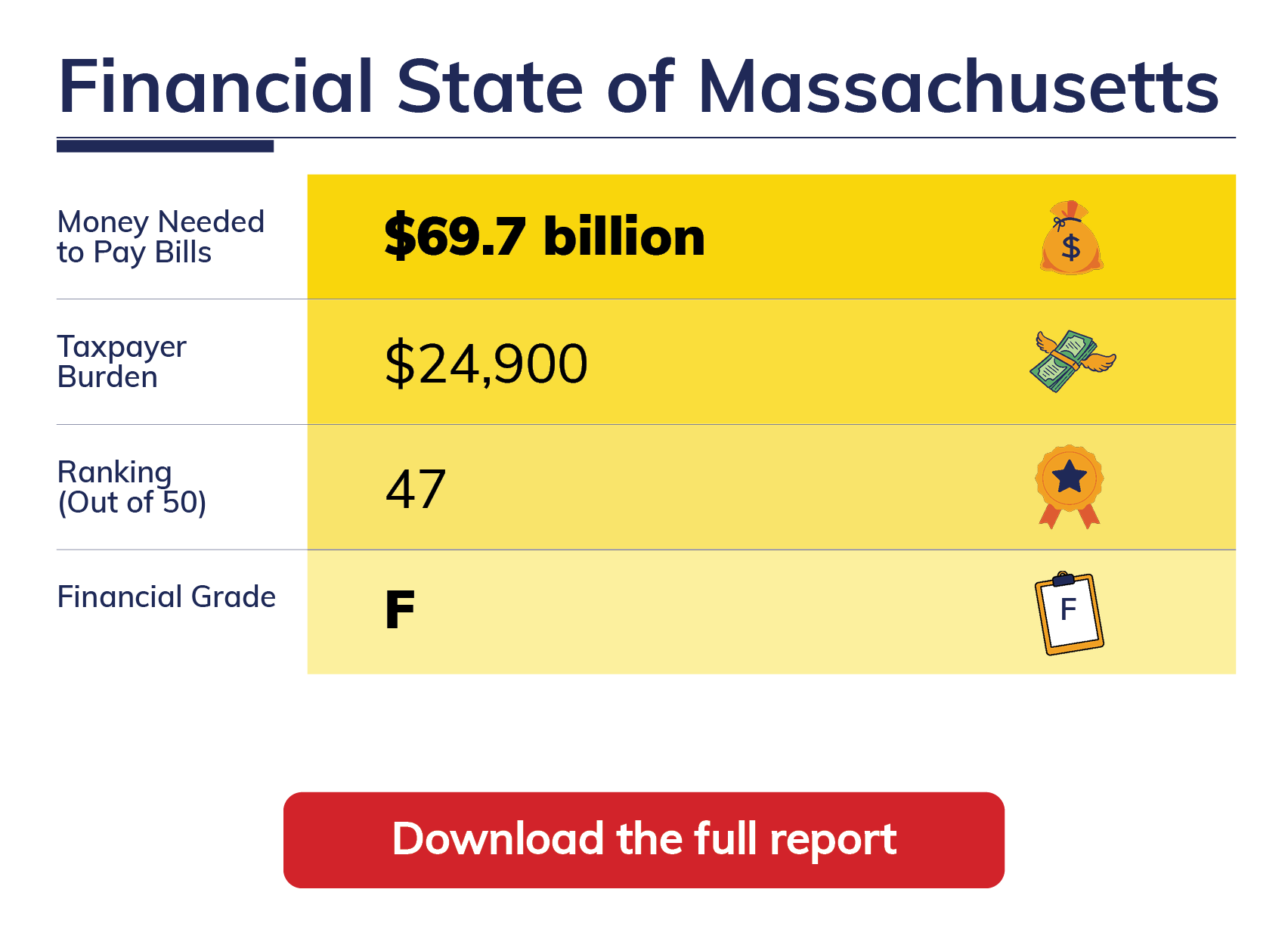Massachusetts
| Massachusetts owes more than it owns. |
| Massachusetts has a -$24,900 Taxpayer Burden.™ |
| Massachusetts is a Sinkhole State without enough assets to cover its debt. |
| Elected officials have created a Taxpayer Burden™, which is each taxpayer's share of state bills after its available assets have been tapped. |
| TIA's Taxpayer Burden™ measurement incorporates both assets and liabilities, not just pension debt. |
| Massachusetts only has $49.9 billion of assets available to pay bills totaling $119.6 billion. |
| Because Massachusetts doesn't have enough money to pay its bills, it has a -$69.7 billion financial hole. To fill it, each Massachusetts taxpayer would have to send -$24,900 to the state. |
| Massachusetts's reported net position is overstated by $1.3 billion, largely because the state delays recognizing losses incurred when the net pension liability increases. |
| The state's financial report was released 303 days after its fiscal year end, which is considered untimely according to the 180 day standard. |
Prior Years' TIA Reports
2023 Financial State of Massachusetts
2022 Financial State of Massachusetts
2021 Financial State of Massachusetts
2020 Financial State of Massachusetts
2019 Financial State of Massachusetts
2018 Financial State of Massachusetts
2017 Financial State of Massachusetts
2016 Financial State of Massachusetts
2015 Financial State of Massachusetts
2014 Financial State of Massachusetts
2013 Financial State of Massachusetts
2012 Financial State of Massachusetts
2011 Financial State of Massachusetts
City and Municipal Reports
Other Resources
Massachusetts Annual Comprehensive Financial Reports
Publishing Entity: Office of the Comptroller


